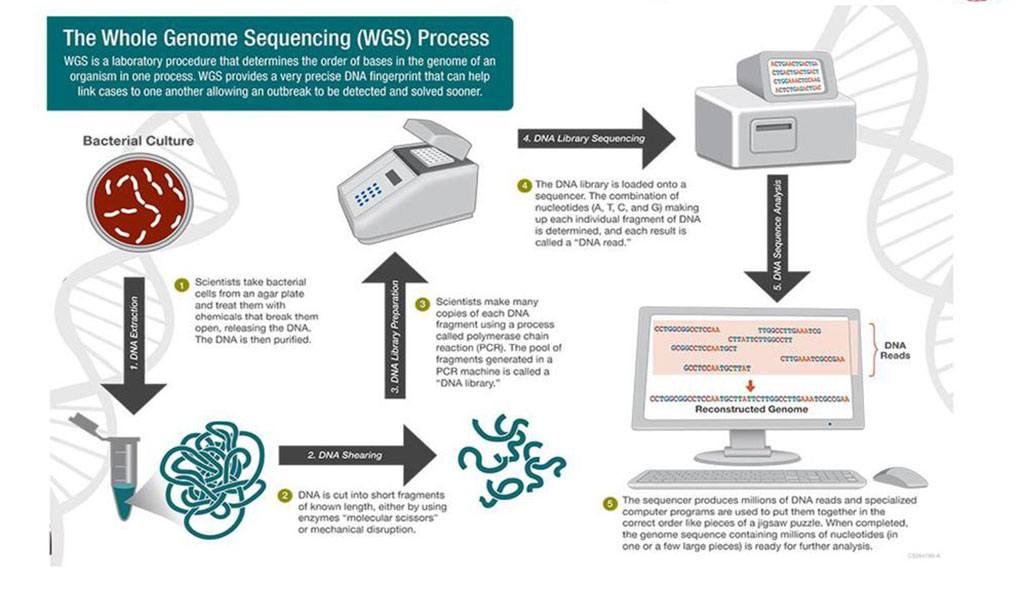Whole-Genome Sequencing Diagnoses Neurological Repeat Expansion Disorders
Posted on 25 Feb 2022
Scientists have found whole genome sequencing (WGS) can quickly and accurately detect the most common inherited neurological disorders – something previously thought to be impossible – with the results supporting the use of WGS as a standard diagnostic tool within routine clinical practice.
Repeat expansion disorders are clinically heterogeneous diseases that affect about 1 in every 3,000 people and are caused by expansions of short tandem DNA repeats. Examples of such disorders include Fragile X syndrome, Huntington’s disease, Friedreich's ataxia, and some forms of amyotrophic lateral sclerosis.

Whole genome sequencing is emerging as a first-line diagnostic tool in patients with rare disease but, until recently, was thought to have limited capability to assess loci containing repeat expansions. Advances in bioinformatics, however, have made feasible the detection of disease-causing repeat expansions from next-generation sequencing data.
Medical Scientists specializing in Molecular Genetics at the Queen Mary University of London (London, UK) and their associates evaluated whole genome sequencing for detection of repeat expansions included both diagnostic accuracy and clinical accuracy assessments. Diagnostic accuracy was evaluated using data from patients who had previously been tested by PCR for repeat expansions known to cause neurological disease.
The team retroactively looked at the accuracy of whole-genome sequencing to detect the 13 most common repeat expansion loci associated with neurological outcomes, using samples from NHS patients thought to have neurological disorders who were recruited between 2013 and 2017 as part of the 100,000 Genomes Project. They used earlier PCR test results for the loci in 404 patients as a reference standard. When whole-genome sequencing of patient samples resulted in a repeat expansion call, they used PCR again to confirm those calls.
The scientists reported that whole-genome sequencing showed 97.3% sensitivity and 99.6% specificity for detecting repeat expansions across the 13 loci, compared to PCR results. They also looked at samples from 11,631 undiagnosed patients with suspected repeat expansions, based on their clinical features, from the 100,000 Genomes Project. They were able to tag 81 repeat expansions in these, 68 of which were in the full pathogenic range providing these patients with a diagnosis.
Sir Mark Jonathan Caulfield MD, FRCP, FESC, FPharm, FBHS, FMedSci, a Professor of Pharmacology, and a senior author of the study, said, “At the moment, diagnosing this type of neurological disorder often depends on people having a family history of the disease or specific clinical symptoms. Using whole-genome sequencing, we can detect these and new repeat expansion disorders.”
The authors concluded that whole genome sequencing for the detection of repeat expansions showed high sensitivity and specificity, and it led to identification of neurological repeat expansion disorders in previously undiagnosed patients. These findings support implementation of whole genome sequencing in clinical laboratories for diagnosis of patients who have a neurological presentation consistent with a repeat expansion disorder. The study was published on March 01, 2022 in the journal The Lancet Neurology.
Related Links:
Queen Mary University of London













